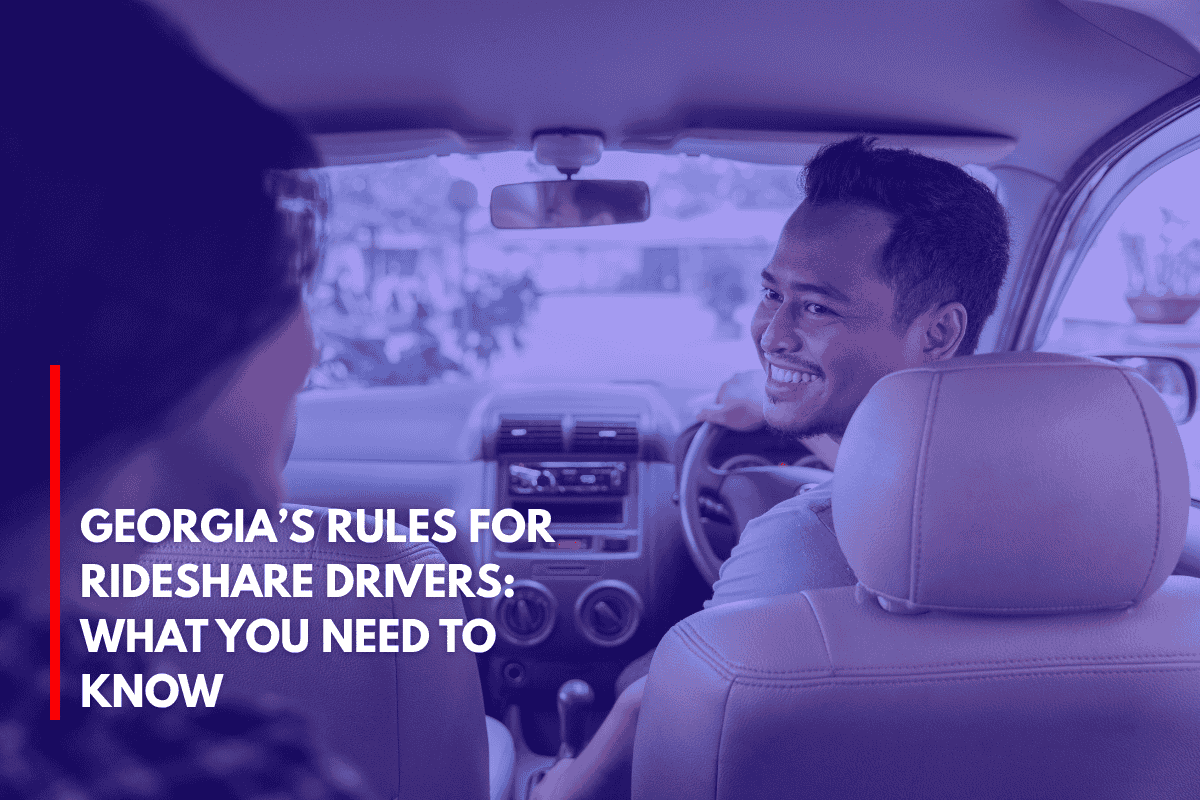Georgia’s rules for rideshare drivers are designed to ensure safety, accountability, and proper insurance coverage for both drivers and passengers. Here’s what you need to know if you’re considering driving for Uber, Lyft, or any other rideshare service in Georgia.
Registration and Licensing
Company Registration: Every rideshare network service (like Uber or Lyft) must register with the Georgia Department of Public Safety and obtain an annual license before operating in the state. The registration fee is up to $100 per year and is nonrefundable.
Driver Identification: Rideshare drivers must maintain digital identification on their smartphone while active, including their name, photo, vehicle make and model, license plate number, and proof of insurance.
Driver Requirements
Age and Documentation:
Drivers must be at least 18 years old, though Uber and Lyft may set higher minimums (Uber: 21+; Lyft: 25+ in Georgia). They must have a valid Georgia driver’s license and either U.S. citizenship or a green card.
Background Checks:
Drivers must pass a background check conducted by the rideshare company, or obtain a for-hire driver’s license endorsement. The background check reviews criminal history (including sex offender registry), driving record, and other eligibility criteria.
Disqualifications: Drivers cannot be hired if they have a DUI conviction within the past seven years, any felony involving a motor vehicle, fraud, property damage, theft, acts of violence or terror, or any sex offense.
Driving Record: Drivers cannot have three moving violations or one major violation (such as DUI, hit-and-run, vehicular homicide, street racing, fleeing police, etc.) in the past three years.
Zero Tolerance Policy:
Rideshare companies must enforce a zero tolerance policy for drug and alcohol use while on duty.
Vehicle Requirements
Safety and Condition:
Vehicles must be in safe, working order and equipped with required safety equipment. Georgia does not require safety inspections for rideshare vehicles, but law enforcement can inspect vehicles suspected of being unsafe.
Insurance:
Rideshare drivers must carry liability insurance that meets Georgia’s minimum requirements. During different phases of rideshare activity, different insurance coverages apply:
App On, No Ride Accepted (Period 1): $50,000 per person for bodily injury, $100,000 per accident for bodily injury, and $25,000 for property damage.
Ride Accepted or Passenger in Vehicle (Periods 2 and 3): $1 million in liability coverage, plus uninsured/underinsured motorist coverage and contingent comprehensive/collision coverage with a deductible.
Offline (Not Using App): Personal auto insurance applies, but many personal policies exclude commercial activities, so drivers are encouraged to secure rideshare endorsements or commercial coverage.
Passenger Safety and Restraints
Seat Belt and Child Restraint Laws: All rideshare services must ensure that front seat passengers age 18 and older are properly restrained. Children of any age must be properly restrained regardless of seating position. Rideshare vehicles are not exempt from these laws.
Fines and Penalties: Failure to comply with restraint laws can result in fines and points on the driver’s license.
Key Takeaways
Rideshare companies must register and pay an annual fee to operate in Georgia.
Drivers must pass background checks or obtain a for-hire license, and meet strict eligibility criteria.
Vehicles must be safe and insured, with coverage levels that change depending on the driver’s status (app on, ride accepted, passenger in vehicle).
Passengers and children must be properly restrained at all times.
Personal auto insurance may not cover rideshare activities without a special endorsement.
Understanding these rules is essential for anyone driving for a rideshare service in Georgia or using one as a passenger. Compliance ensures safety, legal protection, and access to appropriate insurance coverage.
Sources:
- https://rules.sos.ga.gov/gac/570-38-6
- https://law.justia.com/codes/georgia/title-40/chapter-1/article-3/part-4/section-40-1-193/
- https://kingtriallaw.com/blog/vehicle-and-driver-requirements-for-uber-and-lyft-in-georgia/
- https://770goodlaw.com/uber-insurance-coverage-georgia











Leave a Reply